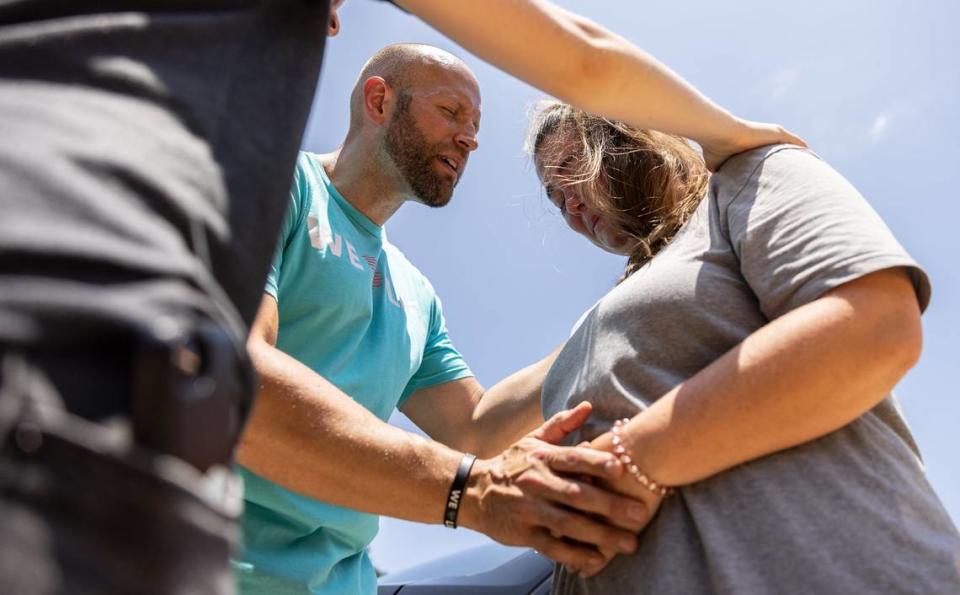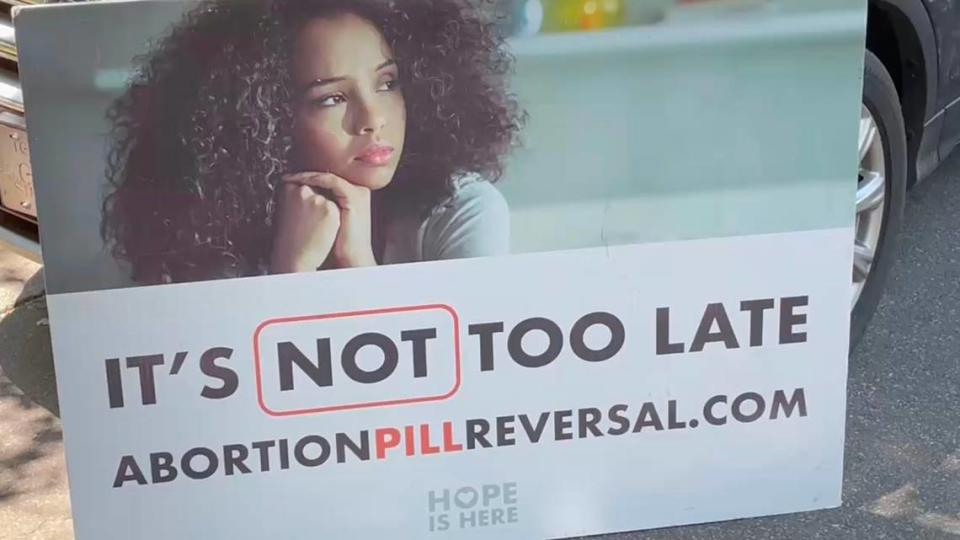What does abortion access look like in North Carolina after Supreme Court decision?
Roe v. Wade
Here's how the Supreme Court decision affects health care, politics, and more in Charlotte and North Carolina.
Charlotte & North Carolina could become destinations for abortions
The last weeks of Roe v. Wade: 2 NC women, 2 voices from America’s divide on abortion
What is an ectopic pregnancy? An abortion? Learn about reproductive health in this guide.
Abortion in North Carolina: A timeline of state laws that have restricted access
Here’s a list of pregnancy crisis centers and abortion resources in North Carolina
With Friday’s Supreme Court decision to overturn its landmark Roe v. Wade ruling, North Carolina is now one of the last states in the South to protect a pregnant person’s ability to get an abortion.
A leaked opinion indicating the Supreme Court would overturn the 1973 abortion ruling sent shockwaves through the country in early May. But even with the decision to overturn Roe, abortions remain legal in North Carolina. And because Democratic Gov. Roy Cooper is not facing a veto-proof Republican-led legislature, that will likely hold for now.
But that could change if Republicans gain a super majority in the upcoming November elections.
For now, abortion clinics will likely see a spike in out-of-state patients.
At least 26 states are certain or likely to quickly ban abortion, according to data collected by the Guttmacher Institute. And 13 of those states have laws in place designed to be triggered automatically or by state action following the overturn of Roe.
And as other Southern states further restrict abortion access, more people will need to travel to North Carolina for abortions.

Texas, Mississippi patients head to NC
A Preferred Women’s Health Center, one of three abortion clinics in Charlotte, performs more than 100 abortions each week, clinic executive director Calla Hales told the Observer last month.
It’s already common for the clinic to see patients from Tennessee, South Carolina and Georgia, she said. And there’s been a recent increase in patients from further states, like Mississippi, Louisiana and Texas.
And since the May opinion leak, there’s been a slight increase in out-of-state patient numbers at the Latrobe clinic, Hales told the Observer Friday in an email.
But that will only increase as Southern states continue to restrict abortion access.

What is abortion law in NC?
North Carolina also has some laws on the books restricting abortions. In N.C., people seeking an abortion must receive state-mandated counseling and wait 72 hours before receiving an abortion.
That will still be the case with the overturn of Roe v. Wade.
But there are still questions around abortion access in the state. An N.C. law banning abortions after 20 weeks — put on hold after passing and later ruled unconstitutional — could be allowed to go into effect for the first time with Roe overturned.
But it’s unclear how fast that could happen.
In the Triangle, some reproductive health rights advocates are preparing for the influx of inquires for abortions and other health care matters.
Jenny Black, the president of Planned Parenthood South Atlantic, said the organization is working to inform potential patients about what rights are still available to them.
“To patients who might be worried or scared about this decision, abortion is still legal and accessible in North Carolina. We are going to fight like hell to keep it that way,” Black said. “It is a dark day when the Supreme Court tells you that you are no longer a free and equal citizen of the United States.”
Black said advocates are not giving up the fight for abortion rights “just because the Supreme Court says that we should.” She also wants people to remember the upcoming elections in the state that should further sway the rights residents already have.
“The stakes for North Carolina just got a lot higher,” Black said.
“We know that abortion bans disproportionately affect Black, Indigenous and people of color,” Black said. “This affects people with low incomes, who live in rural areas and people who traveling long distances to access health care is already a burden. These bans are going to impact those people the most.”
Travel for abortion
Even some North Carolina residents need to travel long distances for abortion access.
Just nine of North Carolina’s 100 counties have abortion clinics. All are in the state’s more populous areas, including Mecklenburg, Wake, Forsyth and Cumberland counties.
But some residents on the N.C. coast have to drive more than 150 miles to the closest state clinic, the Observer previously reported.
About 25,000 people get abortions in North Carolina. Nearly one out of five of those people come from other states.
For out-of-state patients, that can mean added cost, time and stress to the procedure.
“It’s a lot of logistical needs for a provider as well, because you’re having to balance time constraints,” Hales told the Observer in May. “We do have patients that fly in and do their procedure and they’re like, “I have to be out of here by 4 p.m. or I’m gonna miss my plane.
“There’s this added level of stress.”
Kristen Johnson of The News & Observer contributed to this story.

